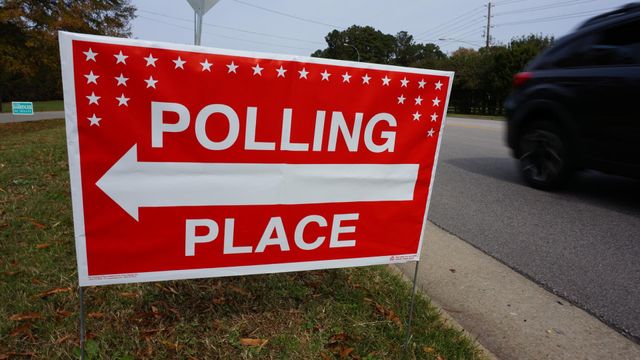NC court: Let felons on probation, parole vote
Plaintiffs cheer what they call the largest expansion of voting rights in North Carolina in decades, but legislative leaders vow an appeal and attempt to block implementation of the ruling.
Posted — UpdatedAn attorney for House Speaker Tim Moore, a defendant in the case as part of the General Assembly's leadership, said they will seek an immediate stay to block the change while an appeal is filed.
“This is an absurd ruling that flies in the face of our constitution and further casts doubt on election integrity in North Carolina," Moore's general counsel, Sam Hayes, said in a statement.
Lawmakers also will seek their own attorneys to represent them in the appeal, noting that the state Attorney General's Office declined to file an immediate appeal, choosing to wait until state attorneys could review the written order before deciding whether to pursue an appeal.
"Until today, we were never informed that the Department [of Justice] would give second thought to representing the General Assembly on appeal," Hayes and Joshua Yost, general counsel for Senate President Pro Tem Phil Berger, wrote in a letter to DOJ officials. "The Department has left the General Assembly with no option but to seek private counsel to protect its rights."
Stein's office said state law requires a written court order for an appeal and that, without one, "our office was unable to commit to future legal strategy. Berger's office called this "an odd technicality" and said Stein was fired "for refusing to perform his duties."
North Carolina's practice has been to restore voting rights when people finish their sentences, but they had to finish all of it, including probation, and pay off fines. A number of advocacy groups sued ahead of last year's elections, and the court said people who are still under court supervision solely because of outstanding fines or fees should be allowed to vote.
Monday's decision extends that to anyone on probation or parole, according to Stanton Jones, an attorney for the plaintiffs. This essentially restores people's right to vote as soon as they finish their time behind bars.
"Doesn’t matter if you’re on probation, doesn’t matter if you’re on parole, doesn’t matter if you’re on post-release supervision," Jones said. "And it doesn’t matter why you’re on any of those statuses."
Attorney Daryl Atkinson, who represented the plaintiffs, called the ruling the biggest expansion of voting rights in North Carolina in decades. No one from the state’s defense could come up with a single good reason to keep the law blocking felons from voting once they were released from prison.
"[There are] 56,000 North Carolinians who are living in our communities, paying taxes every day, dropping kids off at school, but are serving community supervision for felony convictions. This case was about making sure those folks are included in that 'we the people,'" Atkinson said.
"They have to get jobs that take care of family. They're going to the grocery store and paying bills. They're paying taxes," said Diana Powell, one of the voting rights advocates who sues over the law. "A person that has to pay taxes should have a voice in that society, in that community."
State Sen. Warren Daniel, R-Burke, co-chairman of the General Assembly's Redistricting and Elections committee, pushed back against the decision, saying the state constitution gives the legislature the power to lay out how voting rights should be restored, which it did in the 1970s, when Democrats controlled the legislature, through a law written by two Black Democrats.
"If a judge prefers a different path to regaining those rights, then he or she should run for the General Assembly and propose that path," Daniel said in a statement. "These judges may think they’re doing the right thing by rewriting laws as they see fit (without bothering to even explain their ruling), but each one of these power grabs chips away at the notion that the people, through their legislature, make laws."
The State Board of Elections said in its own statement that its attorneys are reviewing the decision and would consider the written ruling when released. It said that, for now, local boards of election "must immediately begin to permit" people covered in the ruling to register to vote.
• Credits
Copyright 2024 by Capitol Broadcasting Company. All rights reserved. This material may not be published, broadcast, rewritten or redistributed.





